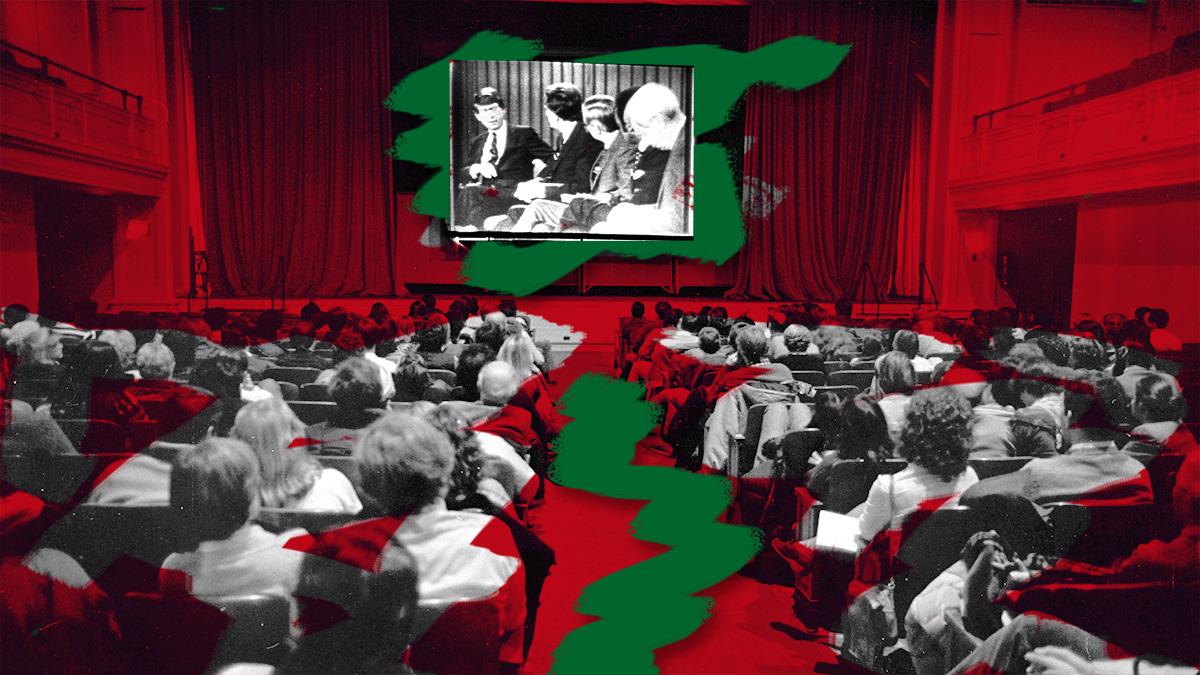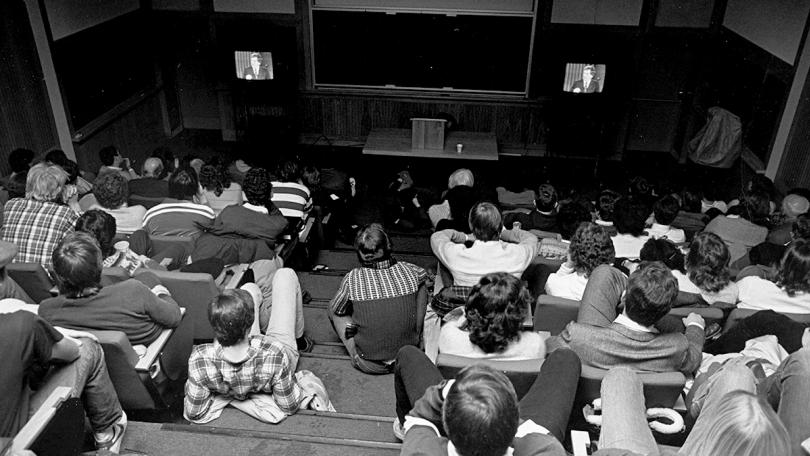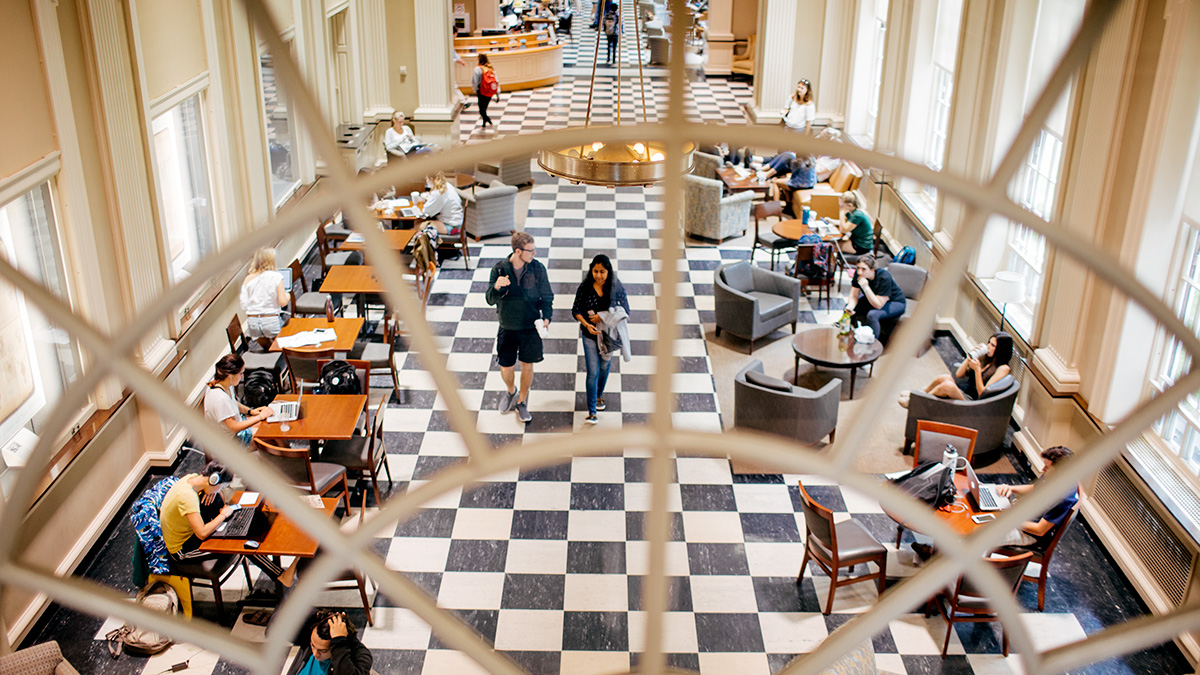1984 Debate: Rockefeller Center on the National Stage

Rockefeller Center on the National Stage
Dartmouth’s Rockefeller Center opened its doors in fall of 1983 and quickly took on a formidable task: hosting the first ever televised presidential primary debate in January 1984. The event affirmed the Center’s commitment to public policy teaching and research, and exemplified the ideals of the Center’s namesake, Nelson A. Rockefeller ‘30, who was committed to “public service and informed public debate.”
The College wanted as many students as possible to have access to the candidates and debate for a one-of-a-kind educational experience while Phil Donahue, one of the debate hosts and creator of the modern daytime talk show format, went so far as to request no one from Dartmouth be allowed in the audience in order to have a “town meeting” atmosphere. The College pushed back and a compromise was reached: two thirds of the audience would be members of the public and the remaining one third would be Dartmouth students, faculty, and staff. Given that the Upper Valley was, and remains, largely homogenous, the College recruited attendees from throughout New England.

Students watching the debate on closed-circuit television.
In order to make room for Phil Donahue to engage with the audience in his signature style, every third row of seats in Spaulding Auditorium was removed allowing for only 246 seats for the public and 122 seats for the College. In 1984, few students had access to televisions; closed-circuit TVs were set up around campus to allow students to view the debate live.
An unexpected and daunting logistical challenge came at the last minute when the College needed to find housing for 200 Secret Service agents. Initially, none of the candidates besides Jesse Jackson were to be assigned Secret Service coverage prior to the debate. In January, the Secret Service coverage date was changed to begin a day before the debate. Most hotel rooms in Hanover and nearby towns were already full, and some agents ended up being housed as far as 40 miles away in Springfield, VT.
The debate, and the College’s role in it, was ultimately deemed a success. The New York Times dubbed it the “Dartmouth Debate,” and the College received coverage in every major newspaper in the United States and some overseas. In her report to Dartmouth President McLaughlin, the Rockefeller Center’s Anne Nelson wrote, “The whole philosophy of Dartmouth College is to instill a strong sense of commitment, community loyalty, and pride in past, present, and future alumni. I believe this will prove to be one of the greatest impacts of the debate on the College.”
